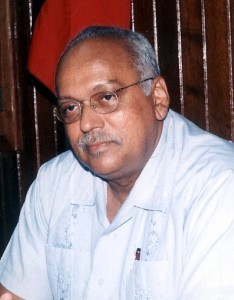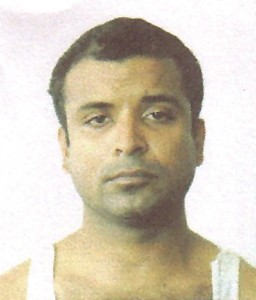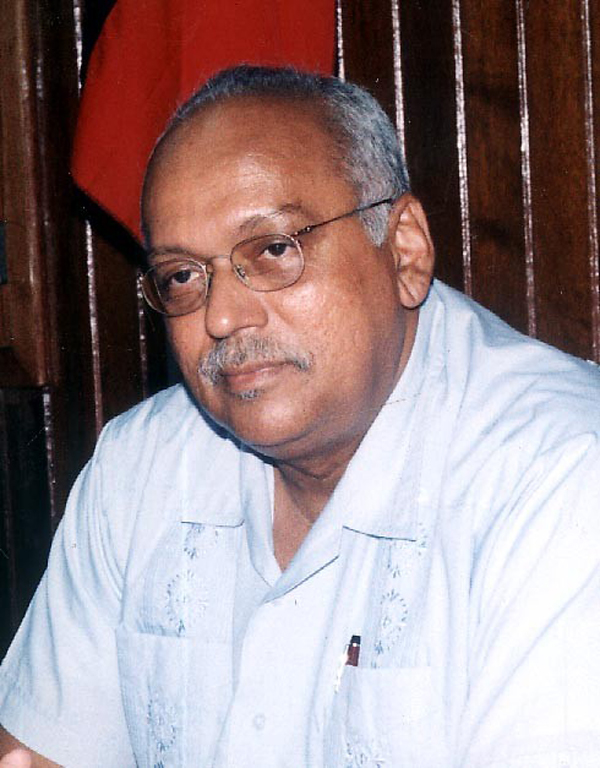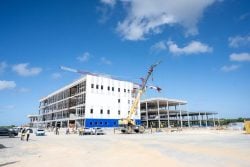 The ruling People’s Progressive Party (PPP) yesterday distanced itself from drug accused Shaheed Roger Khan saying assertions being made through his attorney are “baseless” and it has no knowledge of any of its members ever being associated with him.
The ruling People’s Progressive Party (PPP) yesterday distanced itself from drug accused Shaheed Roger Khan saying assertions being made through his attorney are “baseless” and it has no knowledge of any of its members ever being associated with him.
General Secretary Donald Ramotar made the assertions following queries from reporters yesterday at a press conference at Freedom House Boardroom. Ramotar was asked whether the party was concerned about the statements emanating from the US courts by Khan’s lawyers in the context of a purchase of high-tech surveillance equipment in Fort Lauderdale, Florida for which he allegedly secured the permission of the Guyana Government.
In response Ramotar said he saw the statements as baseless. “I am not concerned about those statements. I tend to believe the Ministry of Home Affairs in this case. The statement is baseless and I am not worried about baseless statements,” he asserted.
Lawyers for Khan, who is facing drug charges in the US, have cited an FBI investigation which they claim revealed that the government had given Khan permission to purchase the sensitive electronic surveillance equipment from Spy Shops in Fort Lauderdale, Florida.
The equipment, which was in the form of a laptop computer, was reportedly capable of intercepting and tracing telephone calls made from a landline or a cellular phone and the software is only sold to governments.
In a statement on Monday following this newspaper’s publication of the assertions by Khan’s attorney Rohee’s ministry rejected the claims.
In the statement government had said that it “rejects outright” the claim that it had authorized the importation “by the Roger Khan outfit of the sensitive piece of electronic equipment seized by the Joint Services.”
The statement had also said that the ministry had asked the American authorities to provide it with the records of all such applications.
 During questioning on the matter yesterday this newspaper put the scenario to Ramotar that whether the assertions were factual or not, the information had already been disseminated in the court of public opinion and in this regard he was asked about the party’s concerns, if any, about the possible tarnish to its image or to the country as a whole. In response Ramotar insisted that his party has never had contact with Roger Khan.
During questioning on the matter yesterday this newspaper put the scenario to Ramotar that whether the assertions were factual or not, the information had already been disseminated in the court of public opinion and in this regard he was asked about the party’s concerns, if any, about the possible tarnish to its image or to the country as a whole. In response Ramotar insisted that his party has never had contact with Roger Khan.
“The party never had any contact with Roger Khan,” he said sternly. Pressed further as to whether any of the party members had had contact with Khan, Ramotar responded, “Not to my knowledge … no member had had any contact with him.”
In a subpoena to the US Drug Enforcement Administration, Khan’s lawyers stated: “FBI agent Justin Krider investigated Khan’s purchase of the computer telephonic surveillance equipment from Spy Shops in Fort Lauderdale, Florida and found Khan had permission from the Government of Guyana to purchase and possess this equipment.”
They are seeking the testimony and all documents in Krider’s possession as these relate to the surveillance equipment purchased in Florida.
In a background paragraph, the subpoena said Khan was alleged to have used the equipment to improperly wiretap various high-ranking officials and others within Guyana in order to maintain his “alleged drug organization.”
Khan became known when along with Haroon Yahya and policeman Sean Belfield he was detained on December 4, 2002 by an army patrol and turned over to the police following the discovery of the sophisticated electronic surveillance equipment and arms in a pick-up at Good Hope, East Coast Demerara.
At the time of their arrests they had told law enforcement officials that they were in search of Shawn Brown and the other prison escapees who had fled the Camp Street prison earlier that year.
Khan and the two others were later charged with possession of arms and ammunition and placed on $500,000 bail each. The charges were subsequently dismissed by the late magistrate Jerrick Stephney at the Sparendaam Magistrate’s Court the following year.
Since their release there has been no public information on what happened to the equipment and many questions posed to officials by this newspaper on how the equipment came into the country and what happened to it after the court case went unanswered.
It was believed that the surveillance equipment was passed back to Khan after the trial as he later acknowledged that he had taped several conversations of leading security officials and other personalities.
Prior to his arrest in Suriname and subsequently by the US authorities, Khan had maintained that he had assisted the Guyana government in fighting crime and subversive elements.





